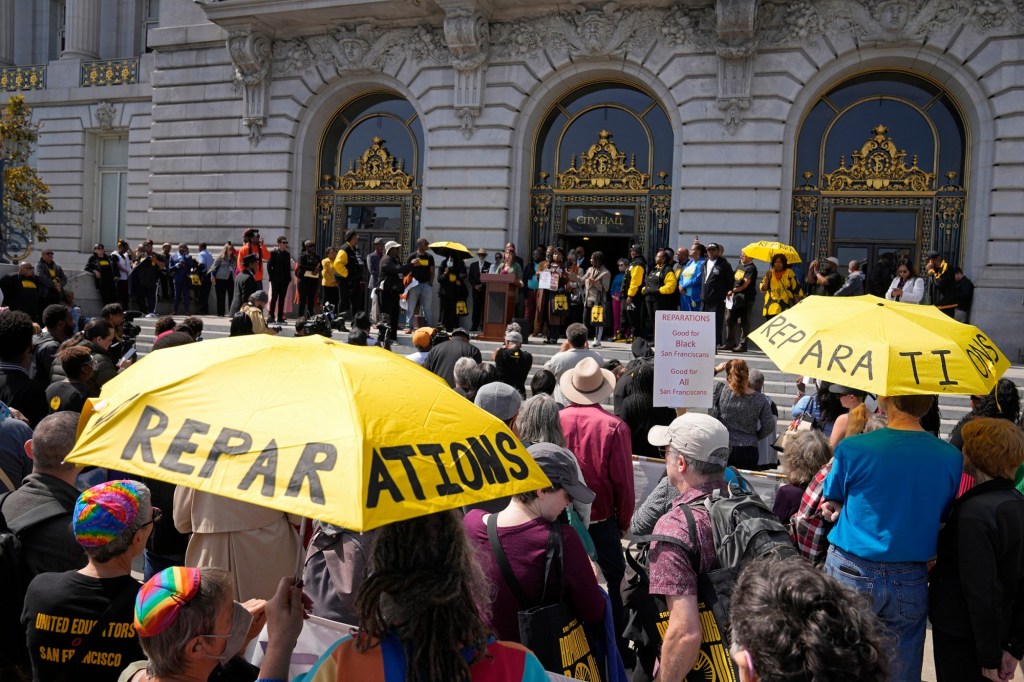
It appears that reparations advocates who fail to learn from history are doomed to a repeat veto. For the second session in a row, Governor Gavin Newsom vetoed several reparations bills that would have provided benefits to California descendants of enslaved persons. For instance, the bill would have offered descendants of enslaved persons college admission preferences, priority licensing, compensation for property taken through racially motivated eminent domain, and dedicated home-buying assistance.
According to a 2023 poll by the University of California, Berkeley, reparations are widely unpopular in the state, with only 23 percent of residents supporting cash payments to minority individuals. In his recent veto message, Newson commended the reparations bill’s authors for seeking to fix “historic injustices”, but said the state could not expend the “immense resources” necessary to implement the bill.
Although stymied once again, the advocates are keen on making another attempt at the next legislative session. But given how challenging the legal landscape is for them, it’s best for reparations supporters — and for all citizens of the free state of California — to accept their modest wins and quit while they feel somewhat ahead.
That’s because the defeat of these bills is a victory for equal treatment under the law and another setback for government-sponsored racial discrimination. This outcome would have occurred eventually, even without a veto, due to California’s Proposition 209 and the United States Supreme Court’s 2023 decision in Students for Fair Admissions v. Harvard.
Prop. 209 prevents the state from both discriminating against and giving preferences on the basis of race in public employment, education, and contracting. Further, the Supreme Court’s decision in Students for Fair Admissions restrained race-based affirmative action in college admissions and hastened limitations on the government’s power to racially discriminate under the Equal Protection Clause of the Fourteenth Amendment to the U.S. Constitution.
The court clarified that racial distinctions by the government only apply in the rare instances that government is remedying specific instances of its past discriminatory conduct. And even then, the discriminatory remedy must be tailored to that conduct. Moreover, the government may never use an individual’s race as a negative against him, nor can it use race to stereotype individuals.
The California reparations bills breach these legal limitations. Their benefits were based on race, rather than personal harm suffered due to specific discriminatory government conduct. As such, they would stereotype individuals as victims of discrimination based on their race and ancestry. In addition, it would disadvantage individuals with the wrong racial identities.
To circumvent constitutional limitations, reparations advocates argued that the benefits were lawfully tied to lineage or ancestry, rather than race. But as the Supreme Court previously instructed in Rice v. Cayetano, ancestry can be a proxy for race. Here, the reparations bills intended ancestry to be a proxy for race to benefit black Californians.
The bills were among the Black Legislative Caucus’ “Road to Repair 2025 Priority Bill Package,” which was “grounded in the recommendations put forth by the California Reparations Task Force.” California formed the Task Force to study and develop reparations proposals specifically for African Americans. Bill sponsors and supporters unequivocally sought to address disparities that black Californians specifically face in various industries. The notion that these reparations were intended to benefit all descendants of chattel slavery regardless of race ignores the undeniable evidence to the contrary. This evidence would not go unnoticed by the courts.
And even if these reparations distinguished race from lineage, they would still offend liberty and justice. Reparations would primarily benefit individuals who did not suffer the crimes committed several generations ago at the expense of those who did not commit them. No one today is a slave or a slave-owner, but California would treat its diverse residents as such based on the identity of their ancestors.
No one can control who their ancestors are, so it is unjust to let that control one’s destiny. That is why the government cannot use discrimination based on race or ancestry to remedy injuries “that may be ageless in its reach into the past, and timeless in their ability to affect the future.”
But reparations advocates gained some ground this year in making present-day Californians answer for (or benefit from) the past. Newsom signed legislation establishing a new state agency to create a process for confirming the ancestry of descendants. He also signed a bill giving $6 million to the California State University to essentially do the same thing. Ultimately, reparations advocates won a government-run 23andMe or Ancestry.com.
Reparations advocates shouldn’t go any further, nor can they, given the limits of the Constitution. These limits exist because of the history of the government’s awful record with race. Our nation correctly learned from this history that “Distinctions between citizens solely because of their ancestry are by their very nature odious to a free people whose institutions are founded upon the doctrine of equality.”
A third time won’t be a charm for reparations advocates because the Constitution will not doom us to repeating a history we have fought hard to avoid.
Andrew Quinio is an attorney at the Pacific Legal Foundation, where he focuses on equality and opportunity



